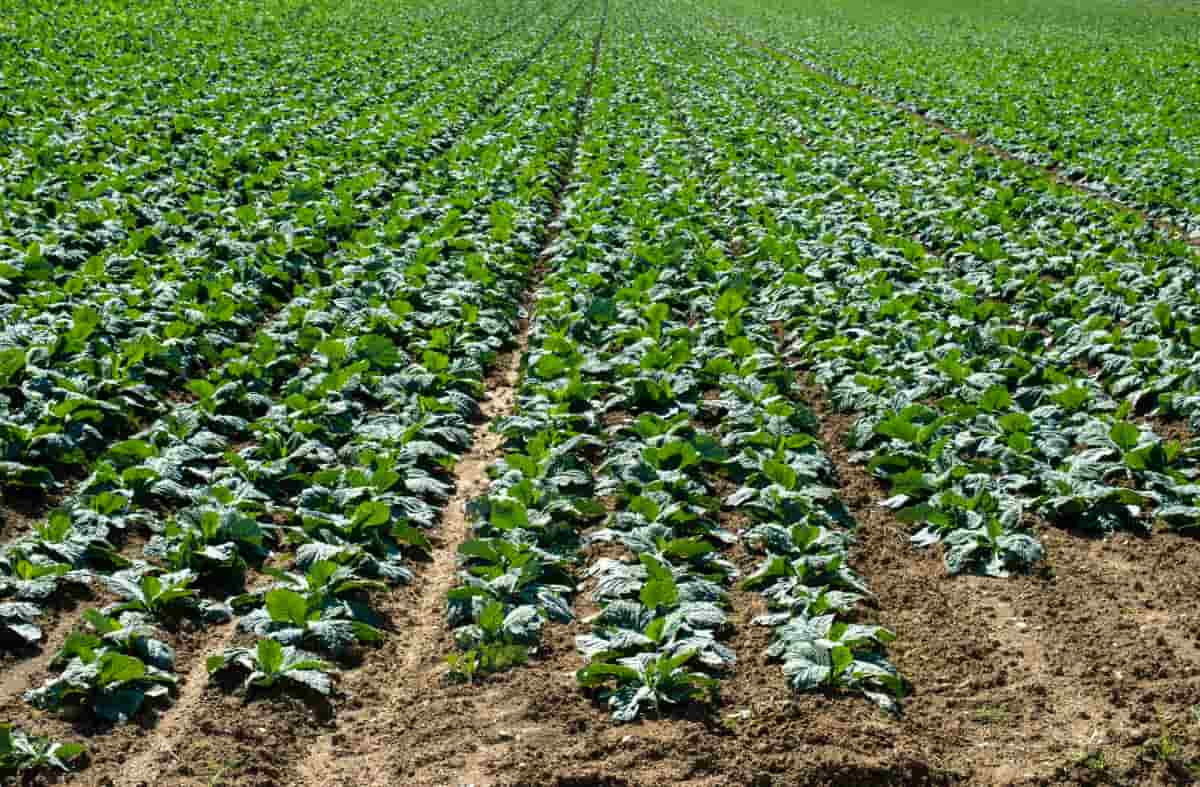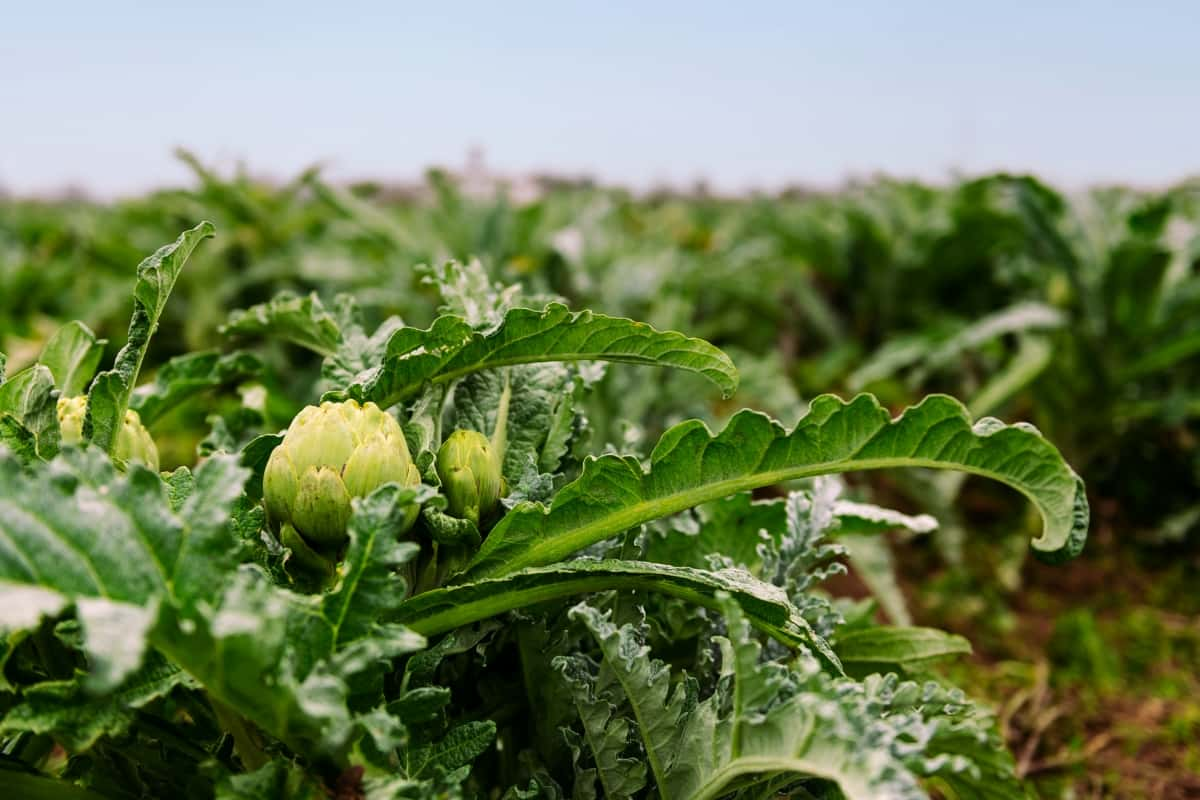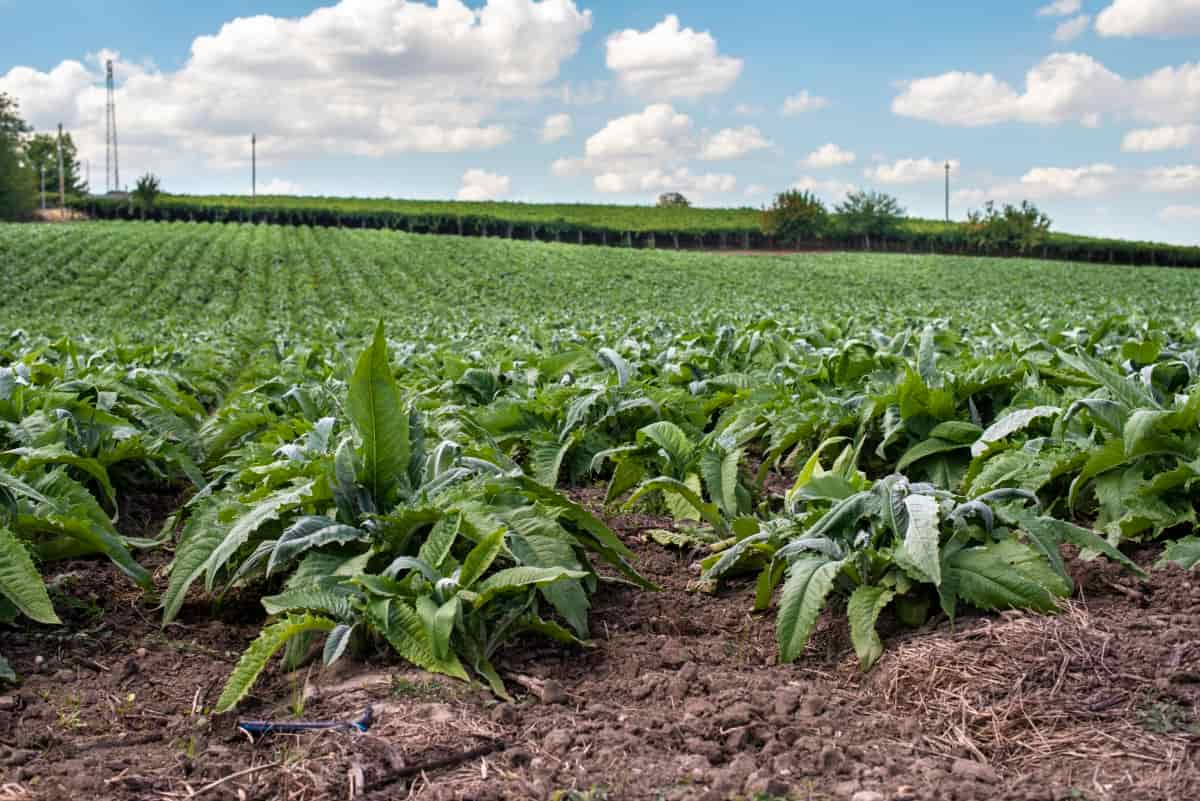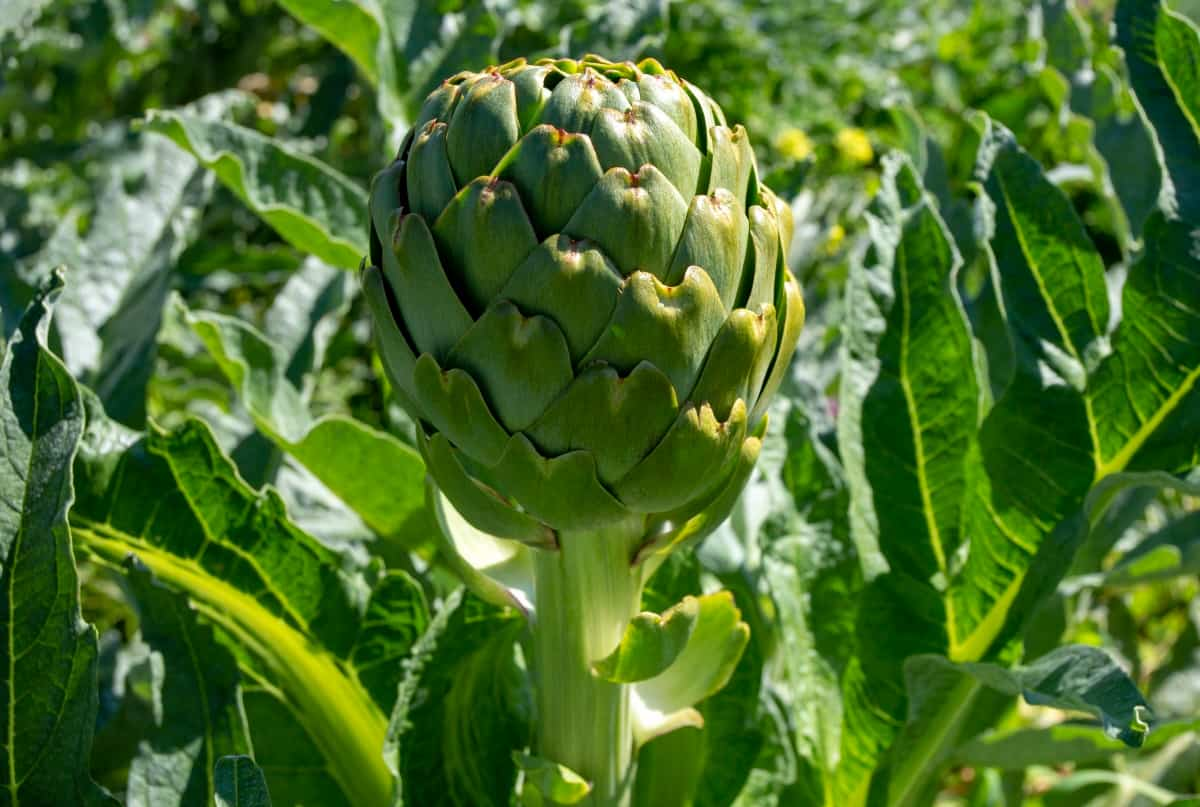Artichoke, scientifically known as Cynara cardunculus var. scolymus, is a unique and delicious vegetable that belongs to the thistle family. This perennial plant is native to Mediterranean regions but has gained popularity due to its distinct flavor and numerous health benefits. Preparing the soil for Artichoke cultivation is a crucial step in ensuring a successful harvest.

Preparing Soil for Artichoke
Understand the Soil Needs for Growing Artichokes
Artichokes are unique plants that require specific soil conditions to thrive. By understanding the soil needs of Artichoke cultivation, you can ensure a successful harvest. Artichokes prefer well-draining soils with a pH level between 6.5 and 7.0. Sandy loam or loamy soils are ideal as they provide adequate drainage while retaining enough moisture for the plant’s growth.
Step-By-Step Guide to Prepare Soil for Artichoke Cultivation
- Test your soil – Before you start preparing the soil for Artichoke cultivation, it’s important to know its composition and pH level. You can purchase a soil kit or send a sample to an agricultural extension office for analysis.
- Clear the area – Remove any weeds, rocks, or debris from the planting area. This will create a clean slate for your Artichokes to thrive.
- Loosen the soil – Use a fork to loosen the soil in the designated area. This will help improve drainage and root penetration.
- Amend with organic matter – Adding compost or well-rotted manure to the soil will increase its fertility and provide essential nutrients for your Artichoke plants.
- Adjust pH if necessary – Artichokes prefer slightly acidic soil with a pH range of 6.5-7.0. If the soil is too alkaline, you can lower the pH by adding elemental sulfur or peat moss.
- Mulch around plants – Once you’ve planted your Artichokes, apply a layer of mulch around them to conserve moisture, suppress weed growth, and maintain even soil temperature.
Use Effective Techniques for Soil Preparation in Successful Artichoke Farming
You can create optimal conditions that will support the growth and yield of your Artichoke plants. It is important to clear any existing vegetation or debris from the area where you plan to grow your Artichokes. Next, loosen the soil by tilling or digging it up with a garden fork. This helps improve drainage and aeration, which are essential for healthy root development in Artichokes. Consider implementing crop rotation practices when growing Artichokes year after year in order to prevent disease buildup in the soil.
Follow Best Practices for Getting the Soil Ready in Artichoke Cultivation
You can make an optimal environment that will support healthy plant growth and maximize your yield. Start by clearing the area of any debris. Once cleared, loosen the soil using a garden fork or tiller. This will help improve drainage and allow plant roots to penetrate easily. Furthermore, consider adding additional nutrients specific to Artichoke requirements, such as potassium-rich fertilizers to promote strong root development and phosphorus for flower production. Adequate water supply is vital for Artichokes’ overall health and productivity.
In case you missed it: Understanding the Different Varieties of Artichokes and Their Growing Requirements

Understand the Importance of Soil Preparation in Artichoke Farming
The quality and condition of the soil directly affect the growth, health, and yield of Artichoke plants. By taking the time to prepare the soil properly, you can create an optimal environment that supports their growth. The main reason why soil preparation is important is because it helps improve nutrient availability. Artichokes require well-drained soil with a rich supply of nutrients.
Furthermore, preparing the soil allows for weed control. Weeds compete with Artichoke plants for nutrients, sunlight, and space. Clearing weeds before planting reduces competition and gives your Artichokes a better chance to thrive. Additionally, proper soil preparation promotes strong root development. Healthy roots enable efficient nutrient absorption and support overall plant vigor. Loose and well-aerated soils provide ample space for root expansion as they grow deeper into the ground.
Improve Soil Quality to Support Artichoke Growth and Yield
In order to ensure a bountiful harvest, it is crucial to improve the quality of the soil where they will be planted. By doing so, you can provide the optimal conditions for Artichoke growth and yield. The main way to improve soil quality in Artichoke is by adding organic matter such as compost or well-rotted manure. These materials not only enrich the soil with essential nutrients but also help improve its structure and drainage.
Another method is by mulching around the plants with organic materials. This helps retain moisture in the soil, control weeds, and regulate temperature fluctuations. Additionally, regular testing of the soil pH is important as Artichokes prefer slightly acidic to neutral soils. You can adjust the pH using lime or sulfur-based amendments. It’s important to follow recommended application rates based on your specific soil test results.
Optimize Soil Conditions for Successful Artichoke Cultivation
The right soil composition can greatly influence the growth and yield of your Artichokes. Testing your soil’s pH is essential before planting Artichokes as it allows you to make necessary adjustments. Next, focus on the texture and structure of your soil. Artichokes prefer loamy or sandy soils that are well-draining yet retain some moisture.
In addition to texture, ensuring adequate fertility is vital for healthy Artichoke plants. Conducting a thorough nutrient analysis will help identify any deficiencies or imbalances in the soil composition. Supplementing with fertilizers based on these results will provide optimal nutrition for robust growth. Regular weeding helps maintain optimum growing conditions by reducing competition.
Consider Key Factors when Preparing Soil for Artichoke Farming
The important factor is the pH level of the soil. Make sure to test your soil’s pH before planting and adjust it if necessary, using organic amendments like sulfur or lime. Artichokes prefer well-drained soil that doesn’t retain excess water. To ensure proper drainage, avoid heavy clay soils by adding organic matter such as compost or aged manure. Nutrient availability is also vital for Artichoke growth. Furthermore, consider the texture of your soil.
In case you missed it: 10 Common Problems With Artichoke Plants: Treatment and Solutions

Use Soil Amendments and Conditioning when Planting Artichokes
Soil amendments and conditioning play a crucial role in ensuring optimal growth and yield. By making necessary adjustments to the soil composition, you can create an environment that is favorable for Artichoke cultivation.
Furthermore, Artichokes thrive in well-drained soils with good moisture retention capacity. Adding perlite or vermiculite can help improve drainage while retaining adequate moisture levels around the root zone.
Apply Effective Strategies for Preparing Soil in Artichoke Gardening
Applying various techniques like tilling, amending, and conditioning the soil will create an ideal environment for Artichoke plants to thrive. Remember to consider key factors such as pH levels, drainage capacity, and organic matter content when preparing the soil. Using organic amendments like compost or well-rotted manure can significantly improve soil quality by increasing nutrient availability and enhancing its structure.
Additionally, incorporating mulch into your garden beds will help conserve moisture and suppress weed growth. Your efforts will be rewarded with healthy Artichoke plants that produce abundant delicious Artichokes.
Frequently Asked Questions (FAQ) on Preparing Soil in Artichoke Gardening
What Type of Soil is Best for Artichoke Cultivation?
Artichokes prefer well-drained soil that is rich in organic matter. Sandy loam or loamy soil works best, as it allows excess water to drain away while retaining enough moisture for the Artichoke plants to thrive.
Can I Grow Artichokes in Heavy Clay Soil?
While Artichokes don’t particularly enjoy heavy clay soil, you can still cultivate them with a bit of extra effort. Amend the clay soil by adding generous amounts of compost and organic matter to improve drainage and provide nutrients for the plants.
Is It Necessary to Test My Soil Before Planting Artichokes?
Conducting a simple soil test can help identify nutrient deficiencies and guide you in making appropriate amendments.
In case you missed it: Frequently Asked Questions About Growing Artichoke from Seed to Harvest

Conclusion
By taking the time to prepare soil properly, you can provide the ideal conditions for Artichokes to thrive and yield bountiful crops. Start a soil test to determine its current nutrient levels and pH balance. This will help guide you in choosing the right amendments, such as organic matter or specific fertilizers, to enrich and balance the soil. Additionally, preparing the soil helps improve its structure and fertility.
- Feed Your Flock for Less: Top 10 Tips to Save on Chicken Feed
- Ultimate Guide to Ossabaw Island Hog: Breeding, Raising, Diet, and Care
- Hatching Answers: The Top 10 Reasons Your Chickens Aren’t Laying Eggs
- Eggs and Economics: Breaking Down the Cost of Raising Backyard Chickens
- Defend Your Greens: Proven Methods to Keep Iguanas Out of Your Garden
- Ultimate Guide to Cinnamon Queen Chicken: A Comprehensive Guide for Beginners
- Ultimate Guide to California Tan Chicken: Breeding, Raising, Diet, Egg-Production and Care
- Ultimate Guide to Marsh Daisy Chicken: Breeding, Raising, Diet, and Care
- 10 Types of Chicken Farming Businesses You Can Start for Profits